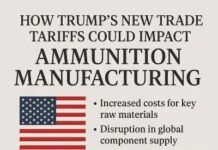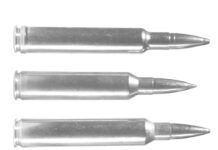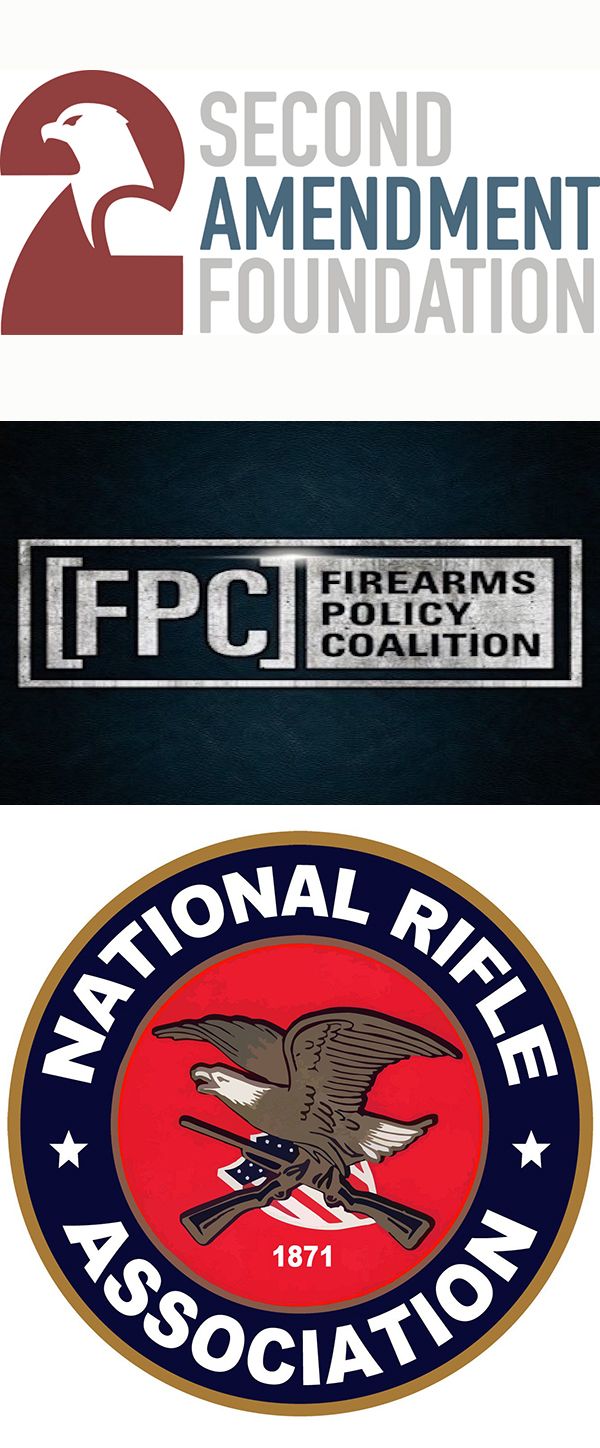In early December, the Firearms Policy Coalition (FPC), the Second Amendment Foundation, and the National Rifle Association filed various briefs with the United States Supreme Court in Smith & Wesson Brands, Inc., et al. v. Estados Unidos Mexicanos, which seeks to stop Mexico’s attempts to impose its gun control regime on Americans through litigation.
Mexico’s lawsuit was originally rejected by U.S. District Judge Dennis Saylor — a George W. Bush appointee — in 2022. However, his decision was appealed to the Boston-based U.S. First District Court of Appeals and overturned earlier this year.
“The financial toll of this abusive litigation has already been devastating to the community — and for one major company, it has been fatal,” argues the FPC brief. “The Court must act now to preserve the statute Congress passed to secure Americans’ access to the tools protected by the Second Amendment — and prevent the industry from being driven out of business.”
“Mexico’s lawsuit is designed to effectively destroy gun rights by eliminating the American firearms ecosystem through frivolous lawfare. Congress enacted the Protection of Lawful Commerce in Arms Act [PLCAA] to stop this kind of abusive litigation and ensure individuals had enduring access to the tools necessary for self-defense and other lawful purposes. The Supreme Court should decide against Mexico and make clear that the law means what it says,” said FPC President Brandon Combs.
“Allowing Mexico to pierce the Protection in Lawful Commerce of Arms Act would result in foreign countries dictating the types of arms that should be commercially available to Americans,” explained SAF Executive Director Adam Kraut. “These types of lawsuits, like the one brought by Mexico, are designed with one purpose in mind – to bankrupt the firearms industry and drive it out of existence.”
“Mexico’s attempt to hold U.S. firearms manufacturers legally responsible for the criminal activity of others, in a foreign country, is precisely the type of lawsuit that Congress designed the PLCAA to block,” said SAF Executive Vice President Alan M. Gottlieb. “Mexico’s lawsuit isn’t just an attack on gun makers, it’s an effort to undermine the authority of Congress to protect manufacturers and consumers alike. As we note in our brief, if Mexico’s lawsuit is allowed to stand, it will result in a new wave of massively expensive litigation solely designed to crush the firearms industry and ultimately eviscerate the Second Amendment.
An NRA statement said that in its amicus brief in Smith & Wesson Brands, Inc., the Mexican government alleged that American firearms manufacturers are responsible for violence committed by Mexican drug cartels in Mexico. The Mexican government seeks billions of dollars from these American manufacturers as well as the imposition of various gun control laws, including a ban on “assault rifles,” a ban on firearms capable of holding “large-capacity” magazines, limits on multiple-gun sales, and extensive background checks for firearm sales.
The district court dismissed the lawsuit, but the First Circuit revived it. The manufacturers then filed a petition for certiorari asking the U.S. Supreme Court to hear the case. The Court did grant the petition, and now the gun groups’ briefs are addressing the merits of the case.
The NRA brief provides a detailed history of the scores of lawsuits brought by the anti-gun lobbies and anti-gun governments in the 1980s and 1990s intended to bankrupt the firearms industry. The brief then refutes Mexico’s argument that “assault weapons” produced by American firearms manufacturers are responsible for crime in Mexico.
The NRA brief further explains:
- That Mexico’s homicide rate declined after the expiration of the U.S. “assault weapons” ban;
- That only a fraction of firearms used in crime in Mexico are determined to have come from the U.S.;
- That Mexican criminals obtain guns from all around the globe; and
- That the Mexican government’s own failures are primarily responsible for Mexico’s homicide rate.
The brief also refutes the notion that the manufacturers’ marketing is designed to appeal to cartels by including images of the U.S. military and the American flag by highlighting the synergistic relationship between America’s firearms culture and the military use of arms.


























